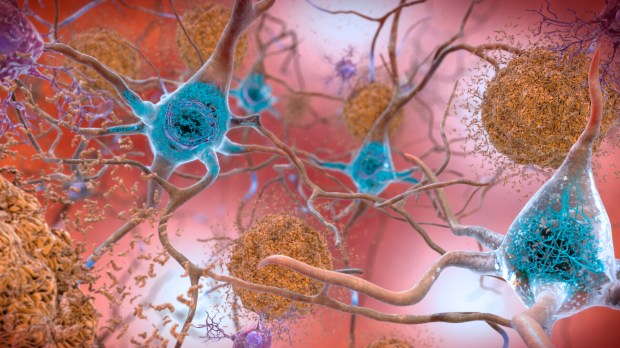Second Alzheimer’s drug raises hope of new dawn in treatment of dementia

A SECOND drug to tackle Alzheimer’s disease could be on the horizon, research shows.
Trials of the medicine donanemab found it can successfully break down clumps of a protein called amyloid in the brain.
These clumps are believed to cause nerve damage that leads to devastating dementia, which affects nearly a million Brits.
A breakthrough discovery this year found another drug that removes the protein slowed the progression of dementia by 27 per cent over 18 months – a world-first.
Now scientists hope the medication made by pharmaceutical firm Eli Lilly will have the same effect.
The trial involved 148 people and tested donanemab against a drug called aducanumab, which was approved for patients in the US but shot down by regulators in Europe.
Read more on Alzheimer's
Professor John Hardy, from University College London, said: “What this trial shows is that donanemab has a similar overall effect to aducanumab but seems as if it is a ‘stronger’ drug.
“This gives further hope that we may have more effective therapies for Alzheimer’s next year and, of course, competition may bring down prices.”
The latest study, presented at the Clinical Trials on Alzheimer’s Disease conference, revealed 37.9 per cent of patients had “clearance” of the protein after six months.
On average, the drug removed two thirds of the amyloid in their brains, scans showed.
A separate trial to test whether it reduces dementia symptoms is under way and set to finish next summer.
Early results from 272 people last year suggested it can reduce mental decline by 32 per cent over 18 months, compared to a placebo.
Professor Jonathan Schott, from the Dementia Research Centre at UCL, added: “The results of the clinical trials are awaited with much anticipation.”
Study author Dr Stephen Salloway, from Brown University, added: “It is encouraging to see that donanemab produced significant reduction of amyloid build up in the brain.
What are the symptoms of Alzheimer's you need to know
The NHS says that the first sign of Alzheimer's is usually minor memory problems.
Official guidance states you might also experience the following:
- confusion, disorientation and getting lost in familiar places
- difficulty planning or making decisions
- problems with speech and language
- problems moving around without assistance or performing self-care tasks
- personality changes, such as becoming aggressive, demanding and suspicious of others
- hallucinations (seeing or hearing things that are not there) and delusions (believing things that are untrue)
- low mood or anxiety
“This suggests that this treatment modified the biology of Alzheimer’s disease early on in treatment.”
In comes after scientists revealed successful trials of a would-first Alzheimer's drug which experts said would be 'game-changing'.
Experts have hailed study results that prove lecanemab is the first of its kind to work.
It works by clearing nerve-damaging clumps of a protein called amyloid out of the brain.




